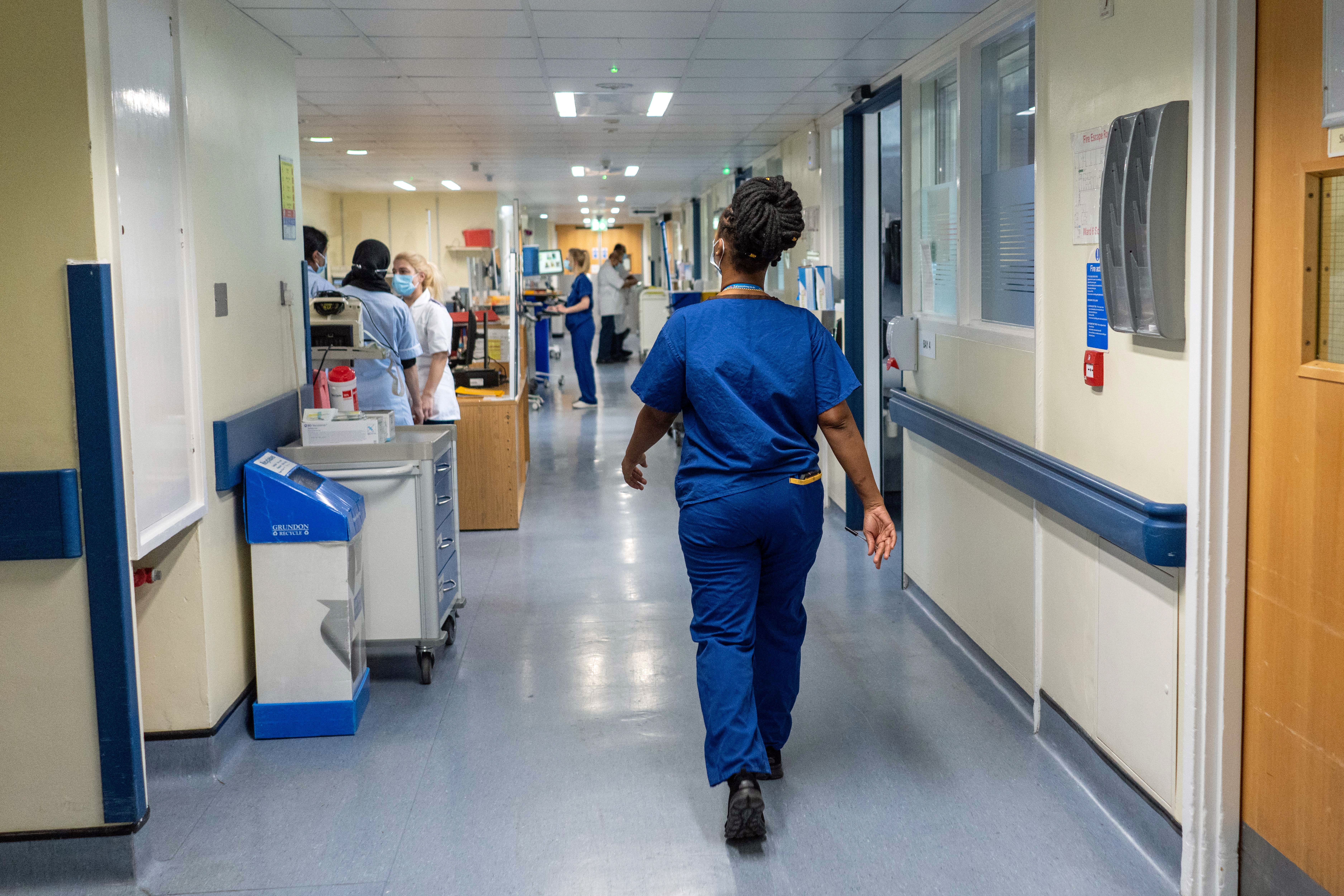Midwife shortage and rising obesity levels straining maternity care – report
The NHS in England was short of the equivalent of 2,500 full-time midwives, the study suggested.

Your support helps us to tell the story
From reproductive rights to climate change to Big Tech, The Independent is on the ground when the story is developing. Whether it's investigating the financials of Elon Musk's pro-Trump PAC or producing our latest documentary, 'The A Word', which shines a light on the American women fighting for reproductive rights, we know how important it is to parse out the facts from the messaging.
At such a critical moment in US history, we need reporters on the ground. Your donation allows us to keep sending journalists to speak to both sides of the story.
The Independent is trusted by Americans across the entire political spectrum. And unlike many other quality news outlets, we choose not to lock Americans out of our reporting and analysis with paywalls. We believe quality journalism should be available to everyone, paid for by those who can afford it.
Your support makes all the difference.A combination of a lack of midwives, increasing obesity levels and women having babies when they are older, is putting pressure on maternity care, according to a new report.
The study, from the Royal College of Midwives (RCM), said the NHS in England was short of the equivalent of 2,500 full-time midwives.
While the NHS workforce in England rose by 14.1% between December 2019 and March 2023, the number of midwives increased by just 1.1% (247 additional midwives), it said.
The report argued that the impact of staffing shortages on women was “stark and sobering”, with Care Quality Commission inspections of maternity services having identified safety concerns directly linked to staff shortages.
The new report also said that, while the number of births had fallen recently, “the decrease is neither linear nor a reason for complacency”.
It added: “Births can – and do – go up, but even if they do not, the complexity of maternity care has increased in recent years.”
The report pointed to how women were giving birth later in life and that the care of them and their babies could be more complex, while “rising levels of obesity impact the demands placed on midwives too”.
One in four women were obese at the time of their booking-in appointment during November 2022, up from 18% five years earlier.
This report lays out the significant challenges facing midwives and their colleagues and what needs to be done to turn this situation around
Birte Harlev-Lam, executive director midwife at the RCM, said: “This report lays out the significant challenges facing midwives and their colleagues and what needs to be done to turn this situation around.
“The NHS workforce plan is a start and an opportunity to really make a difference. It has the potential to alleviate the incredible strain on midwives, maternity support workers and their colleagues.
“The Government has promised much with the plan and we will be watching to make sure they honour those promises.
“Women and maternity staff deserve nothing less than total commitment from the Government to once and for all end this crisis.
The NHS is one of the safest places to give birth in the world, but we know there is more to do
“This means giving maternity services the resources needed now, and long into the future.”
A Department of Health and Social Care spokesperson said: “The NHS is one of the safest places to give birth in the world, but we know there is more to do.
“We’ve taken steps to improve the quality of care for mothers and babies within the NHS, including £165 million of additional investment per year to grow the maternity workforce and improve neonatal services.
“The NHS recently published the first ever Long Term Workforce Plan, backed by over £2.4 billion in government funding, to deliver the biggest training expansion in NHS history to help meet the challenges of a growing and ageing population by recruiting and retaining hundreds of thousands more staff over the next 15 years.”